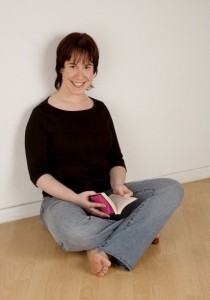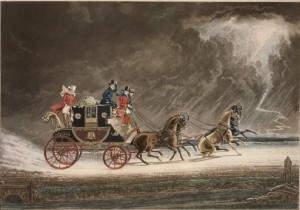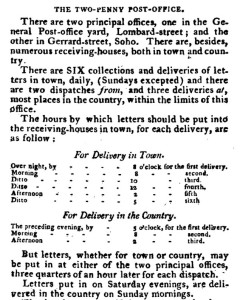 The Riskies welcome Sandra Schwab, who’s visiting today!
The Riskies welcome Sandra Schwab, who’s visiting today!
Many of the real-life contemporaries of our Regency or Victorian heroes and heroines were prolific letter writers. For example, when the British Academy-Pilgrim edition of The Letters of Charles Dickens was completed in 2002, the series had reached twelve (rather fat!) volumes, and supplements with newly discovered letters continued to be published until the summer of 2013. Since nineteenth-century people could not yet share funny pictures of cats online, they used letters to maintain and strengthen relationships with family, friends, and acquaintances. “When [Jane Austen and her sister Cassandra] were apart,” Deirdre Le Faye explains in the preface to Jane Austen’s Letters,
“they wrote to each other about every three or four days – another letter began as soon as the previous one had been posted. There is always a first letter from Jane telling Cassandra of the journey from home to the destination; then a series of letters talking about daily events at the other place; and one or more letters planning the journey home. If Cassandra is the traveller, then the first letter is from Jane hoping she had a good journey; the bulk of the sequence is Jane telling Cassandra how life progresses at home; and the last one or two are Jane’s anticipation of her sister’s speedy and comfortable return trip.”
It had been the introduction of turnpike roads and the improved methods of road-making developed by Telford in the late 1700s that had made it possible to replace mounted post boys with mail coaches.  In subsequent years, the mail system in Great Britain became extremely efficient and very fast: at eight o’ clock each evening, the post bags were brought from the General Post Office in Lombard Street to the various coaching inns (typically with underground stables) in London from where the mail coaches would start on their all-night journeys. While sixty or seventy years before, letters between London and Edinburgh were only dispatched once a week and, by stage coach, the journey between London and Edinburgh took between twelve to sixteen days (if the weather did not suddenly turn to the worse!), the Regency mail coach only needed about 58 hours to reach Edinburgh.
In subsequent years, the mail system in Great Britain became extremely efficient and very fast: at eight o’ clock each evening, the post bags were brought from the General Post Office in Lombard Street to the various coaching inns (typically with underground stables) in London from where the mail coaches would start on their all-night journeys. While sixty or seventy years before, letters between London and Edinburgh were only dispatched once a week and, by stage coach, the journey between London and Edinburgh took between twelve to sixteen days (if the weather did not suddenly turn to the worse!), the Regency mail coach only needed about 58 hours to reach Edinburgh.
 Within London, letters were delivered by the Two-Penny Post. The Picture of London for 1805 includes the following information about this service (“country” refers to specific places in Kent, Surrey, Hertfordshire, Essex, Middlesex):
Within London, letters were delivered by the Two-Penny Post. The Picture of London for 1805 includes the following information about this service (“country” refers to specific places in Kent, Surrey, Hertfordshire, Essex, Middlesex):
Six deliveries per day! Can you imagine? Of course, I had to put this interesting bit of research into one of my books. And thus, in SPRINGTIME PLEASURES Charlie, my very tall, bespectacled heroine, makes plenty of use of the Two-Penny Post and exchanges many letters with her friend Emma-Lee, who is ever ready to help Charlie navigate the pitfalls of polite society:
 Thank you for your message, dear Charlie. I have only a moment before the post goes out so please excuse the shortness of this note.—I should hope your first Ball was as splendid as you ever wished for & I also hope that you did not Damage the two disparaging gentlemen. This is NOT DONE in London and w’d cause the most frightful Scandal! (Even if they deserved it.)—I am most curious to hear more about your new acquaintance. I c’d not find out about any rules about Invitations to Drives around the Park, but I w’d deem it best that you w’d not mention things like Removing Bloodstains from Delicate Fabrics, the Correct Way of Gutting Fish, or the Incident on our way south. You must remember that Lady Isabella is a Delicately Reared Young Lady!
Thank you for your message, dear Charlie. I have only a moment before the post goes out so please excuse the shortness of this note.—I should hope your first Ball was as splendid as you ever wished for & I also hope that you did not Damage the two disparaging gentlemen. This is NOT DONE in London and w’d cause the most frightful Scandal! (Even if they deserved it.)—I am most curious to hear more about your new acquaintance. I c’d not find out about any rules about Invitations to Drives around the Park, but I w’d deem it best that you w’d not mention things like Removing Bloodstains from Delicate Fabrics, the Correct Way of Gutting Fish, or the Incident on our way south. You must remember that Lady Isabella is a Delicately Reared Young Lady!
Yours very affectionally, E.-L. Brockwin
P.S. I understand that it is Not Done in Polite Society to adress the groom on the box seat, except for giving him directions. So you better not ask him about the horses!
Sandra Schwab started writing her first novel when she was seven years old. Twenty-odd years later, telling stories is still her greatest passion, even though by now she has exchanged her old fountain pen (covered with pink hearts) for a computer keyboard (black, no hearts). She lives near Frankfurt on the Main, Germany, with a sketchbook, a sewing machine, and altogether too many books.
Buy SPRINGTIME PLEASURES on Amazon
Like Sandy on Facebook
Follow her on Twitter
Watch her book-unboxing videos on YouTube
Or ask her a question here today!

Thank you so much for having me, Janet and all the other Riskies!
Something I forgot to mention in the article is that I took the beginning of Emma-Lee’s letter (“I have only a moment before the post goes out”) from a letter by Charles Grey (the later 2nd Earl Grey), which can be found in the Creevey papers, edited by John Gore.
Great to have you here, Sandra. I cannot get over the six deliveries per day–if you lived in the right neighborhood and had the right sort of income, that is! The other interesting thing about letters in the Regency and later is that so often they were written to be shared and read aloud to the rest of the family or even with neighbors, like Jane Fairfax’s letters in Emma.
I have always been a letter writer. I wrote constantly to my family and friends when I lived in Europe, especially to my grandmothers and my great aunts. They were able to enjoy my travels without leaving their living rooms.
I would have loved delivery so many times a day.
I had several penfriends during my teens and exchanged long letters with them. There is something so special about receiving a handwritten letter, isn’t there?
Thanks for all the interesting info on letters and the mail. I used to love to write letters. I still exchange long emails with a few good friends. Even though I like chatting in person or on the phone, writing gives me a chance to think more deeply about things and better express what I want to say.
What I always loved best about writing letters was to imagine the joy of the recipient, and I always tried to make my letter special by including little sketches – something several nineteenth-century letter-writers did as well: in a study on John Leech, the artist, I’ve found a letter he wrote to a friend whom he was inviting for dinner. Because he had just moved into new lodgings in Brook Green, he also included a quick sketch of his new house with funny inscriptions. 🙂